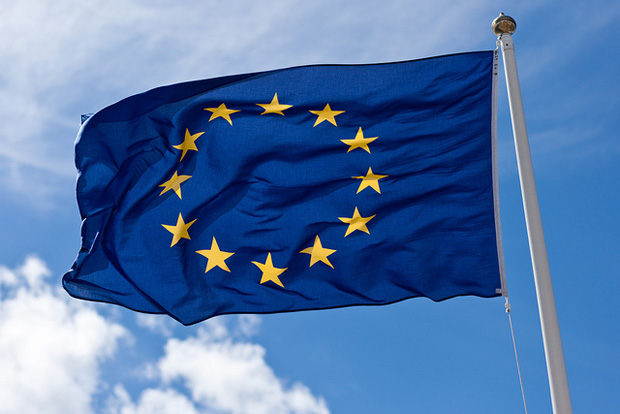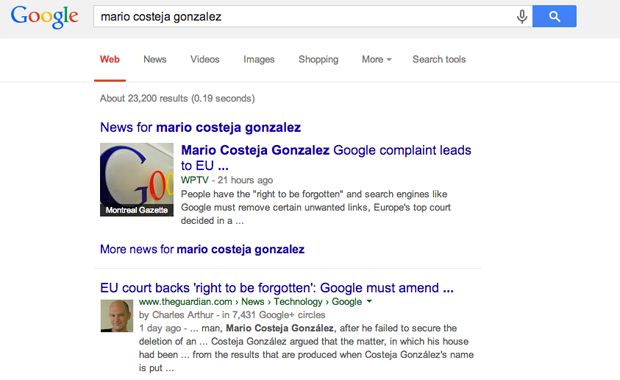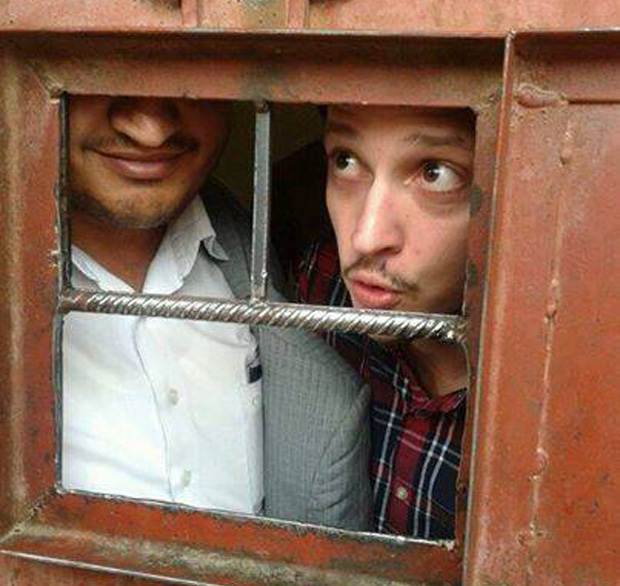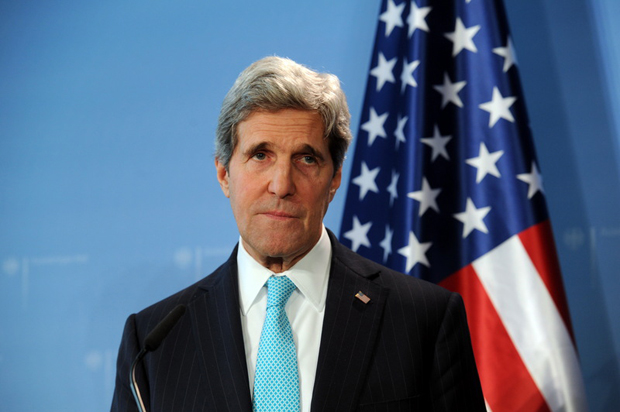15 May 2014 | Europe and Central Asia, European Union, News and features

(Image: Håkan Dahlström)
A new set of guidelines laid out by the EU, and contributed to by Index on Censorship, will specifically look at freedom of expression both online and offline, and includes clauses, among others, on whistleblowers, citizens’ privacy and the promotion of laws that protect freedoms of expression.
According to the Council of the European Union press statement, freedom of opinion should apply to all persons equally, regardless of who they are and where they live, affirming this freedom “must be respected and protected equally online as well as offline”.
Significant consideration within the EU Human Rights Guidelines on Freedom of Expression Online and Offline, adopted on 12 May, is paid to whistleblowers with the council vowing to support any legislation adopted which provides protection for those who expose the misconduct of others, as well as reforming legal protections for journalists’ rights to not have to disclose their sources.
Reinforcing this, the new guidelines enable the Council to help those, journalists or others, who are arrested or imprisoned for expressing their opinions both online and offline, seeking for their immediate release and observing any subsequent trials.
Member states also have an obligation to protect their citizens’ right to privacy. In accordance with article 17 of the International Covenant on Civil and Political Rights (ICCPR), the guidelines claim “no one should be subject to arbitrary or unlawful interference with their privacy“, with legal systems providing “adequate and effective guarantees” on the right to privacy.
The guidelines will provide guidance on the prevention of violations to freedom of opinion and expression and how officials and staff should react when these violations occur. The guidelines also outline the “strictly prescribed circumstances” that freedom of expressions may be limited; for example, operators may implement internet restrictions (blockages etc.) to conform with law enforcement provisions on child abuse. Laws under the new guidelines that do adequately and effectively guarantee the freedom of opinions to all, not just journalists and the media, must be properly enforced.
“Free, diverse and independent media are essential in any society to promote and protect freedom of opinion and expression and other human rights,” according to the Council press release. “By facilitating the free flow of information and ideas on matters of general interest, and by ensuring transparency and accountability, independent media constitute one of the cornerstones of a democratic society. Without freedom of expression and freedom of the media, an informed, active and engaged citizenry is impossible.”
Read the full set of guidelines here.
This article was posted on May 15, 2014 at indexoncensorship.org
14 May 2014 | About Index, Campaigns, Digital Freedom, European Union

Tuesday’s ruling from the Court of Justice of the European Union (CJEU) said that internet search engine operators must remove links to articles found to be outdated or irrelevant at the request of individuals.
No legal oversight, no legal framework, no checks and balances
Although it was made with intention of protecting European citizens’ personal data, the court’s ruling opens the door for anyone to request that anything be hidden from a search engine database with no legal oversight. The ruling could have negative implications to freedom of expression in the EU.
The case dates back to March 2012, when a Spanish citizen, Mario Costeja González, filed a complaint against Google and the newspaper La Vanguardia after discovering that a Google search for his name produced results referring to his homes repossession and auction for non-payment of social security contributions in 1998.
González argued that the 1998 auction notice mentioned in La Vanguardia should no longer be linked to his name in internet searches.
The information on La Vanguardia site had been published legally and was protected by the right to information. However, relying upon the EU’s data protection directive — which the CJEU last year argued did not establish a right to be forgotten, the judges ruled that González’s privacy rights override not only the economic interest of Google as a search engine, but also “the interest of the general public in having access to that information upon a search relating to [González’s] name.” As a result they ordered all links to the auction notice be removed from Googles search results.
The ruling now makes it possible for individuals to request an internet search engine operator to remove links to content found outdated or irrelevant following a search made on the basis of a person’s name. The request can be about any item, included lawful pages, containing true information, that are publicly available. While it’s understandable that people might want to restrict access to private information (embarrassing pictures, for example), Index does not believe that the ruling addresses this in an appropriate way.
A search engine is not a publisher and it neither owns nor stores the web pages containing information relating to a person, especially when this information emanates from public records. The courts ruling sets different standards between search engines, which are intermediaries, and publishers, who produce the content and are responsible for making the information public. In this particular case, it will mean there is a difference between searching what is publicly available in the newspaper archives in a local library and what is publicly available on the internet.
Privatisation of censorship: allowing search engines to become censor-in-chief
The US magazine The Atlantic notes the court ruling explicitly mentions González’s auction notice. So would that mean the ruling itself could be made unsearchable online if Gonzalez requested it? It would be up to Google and others discretion to decide whether or not the public’s right to access the court decision overrides González’s privacy.
The ruling specifies that a fair balance should be sought between the public’s right to access given information and the data subjects right to privacy and data protection, but one of our greatest concerns is that it does not provide any legal framework for the search engine operator to implement the removal, nor does it provide sufficient elements to guarantee public interest defence against removal. It leaves to private companies the power to amend search results without any legal oversight and checks and balances.
The ruling makes a search engine operator a controller able to rectify, erase or block links to information publicly available. According to the judges, the controller must take every reasonable step to ensure that data which do not meet the requirements of that provision are erased or rectified. It means that private companies such as Google or Yahoo would be in a position to decide whether or not information is “adequate, relevant” and “kept up to date”. There is a provision in the ruling for public interest to be taken into account but, again, this is not something that search engines should be deciding. Furthermore, the ruling does not provide for what happens when irrelevant information is hidden from public view and then becomes suddenly relevant because a former nobody suddenly becomes, say, a public figure.
Alongside practical implications for companies that would be required to implement the ruling, search engine operators should not be responsible for taking such decisions. Should they choose to refer decisions to local information commissioners, the commissioners could find themselves deluged with requests they simply do not have the resources to manage. Britain’s Information Commissioner has already described the regime as one no one will pay for.
A bad precedent for countries within and outside Europe
Although the ruling was welcomed by some as a clear victory for the protection of personal data of Europeans; it clearly restricts EU citizens right to information freely available on the internet. The ruling as it stands could be used to censor legitimate content and takes Europe closer to countries that have a tradition of internet control. At a time when the number of takedown requests is increasing globally, and more countries are banning Facebook, Twitter, and YouTube, Index fears this ruling could further empower those who try to silence information available on the web and rein in online freedom of expression.
Journalists who live in countries where they experience censorship everyday understand this instantly; this is about removing information at whim from the public domain or at least making it much harder to find. Making it more difficult for journalists to undercover stories about fraud, child abuse and expenses scandals. And just because an individual would rather that information could not be found.
In Turkey for example, the government blocked the country’s access to YouTube in March, after banning Twitter earlier in the month, in an effort to quell anti-government sentiment prior to local elections. The government officially banned Twitter after the network refused to take down an account accusing a former minister of corruption. In the Turkish case, there is the risk that material objectionable to the government would be more easily removed by deleting the links to relevant articles and blog posts.
“This is worrying news because the right to be forgotten can quickly morph into the right to polish ones public image, using privacy rights as an excuse. The public also has rights, and access to public information about citizens is one of those,” says Turkish journalist Kaya Genc. “In the age of social media, it is very difficult to tell who is a public figure our lives are all public now and the sooner we accept this, the better.”
In the end, the ruling leaves more questions than it answers: Who decides what’s “relevant”? Which person gets to hide access to which information? What stories will be made to “disappear”? When does a story become out of date? Could US citizens search for information about EU citizens on search engines that EU citizens would not be able to see?
And how long before this article is inaccessible because someone mentioned in it wants to hide it from public view?
This article was posted on May 14, 2014 at indexoncensorship.org
14 May 2014 | Middle East and North Africa, News and features, Yemen

American journalist Adam Baron in jail. He was deported from Yemen last week. (Image: @almuslimi/Twitter)
Working in Yemen as a journalist can often feel like being an involuntary character in a clichéd Hollywood drama — a hybrid of a John le Carré novel and a Johnny English-style parody.
In over three and half years living in Yemen I’ve gone on the run from government agencies on four occasions. Looking back months later you either laugh or shake your head in despair at the surreal madness of it all.
One occasion involved a more than six-hour drive across part of rural Yemen popular for US drone strikes, with a local journalist alongside me. Exhausted and relieved, our successful getaway ended just before dawn.
Another was, in hindsight, rather more comical. As Yemen’s uprising intensified in April 2011, district security chief came knocking on the door in the middle of the night. He was looking for journalists and demanded copies of foreigners’ passports. It was a few weeks after soldiers had stormed the house of three foreign journalists who were then deported. The young, clandestine-revolutionary who guarded the apartment block where American journalist Jeb Boone and I were temporarily staying, managed to put the official off until the next day.
Under the cover of darkness we each packed a small rucksack of essentials: cameras, notebooks, and a change of clothes, while planning our escape to a friend’s house which had been left empty following the evacuation of the majority of the ex-pat community due to deteriorating security in Sana’a. As we made our furtive escape, creeping out of the gate in the early hours of the morning we walked straight into a truck full of soldiers parked outside the next-door neighbour’s gate. George Smiley wept.
The third almost ended in disaster. After writing a piece in January last year for The Times on Saudi Arabia’s involvement in America’s covert war in Yemen, on advice, I once again temporarily relocated in Sana’a amid fear of reprisals for my reporting. A couple of weeks after returning to my Old City home the taxi I was travelling in was ambushed outside the Ministry of Defence. A bullet smashed through the window next to my head, hissed through the hair of my driver but miraculously left both of us unharmed. Since then I have probably become the only woman in the world to convert their United Nude shoe bag into a gunshot trauma kit which I’ve since carried with me at all times.
But, as foreign journalists we have little if anything to fear. The worst that’s likely to happen to us, as American journalist Adam Baron found out during his deportation last week, is a 10-hour spell in jail wondering if we’re going to be given a few minutes to pack before being kicked out of the country we call home, without the possibility to return.
While we — the handful of foreign journalists based in Yemen — might have anxious moments once or twice a year, our Yemeni colleagues are constantly under threat. Yemen remains amongst the bottom 15 countries out of 180 in the world for press freedom. A Human Rights Watch report last September concluded that freedom of expression since President Abd-Rabbu Mansour Hadi took power in February 2012 has increased, but along with it, intimidation and violence against journalists has also risen. Yemen’s Freedom Foundation recorded 282 attacks and threats against journalists and media workers in 2013.
While Adam waited anxiously in jail last Tuesday, passport and phone confiscated, unease spread. Officials indicated that “other foreign journalists were next” my name was also mentioned. Not knowing if they’re coming to get you today, tomorrow, or at all, means that despite the relatively benign consequences, you are gripped with an almost unbearable sense of apprehension. Preparing for the worst I informed my editor at The Times in London and started to pack.
Three days later, still waiting, the madness felt like it was closing in. As the sunset over Sana’a on Friday evening one friend called to tell of gunfire and explosions next to his house. Meanwhile I sat in the protective darkness of my stairwell whispering into my phone as I heard the distant voices of two men banging on my front gate. Was this it? Was this the moment I would be forced to leave? My phone — on silent in case it was heard by those outside — lit up. Another friend had just narrowly avoided driving straight into a running gun battle in the south of the city. I tiptoed down the stairs in the dark and silently slid the two deadbolts across the large wooden door of the ancient Yemeni tower-house that is my home.
The irony is that while the ex-pat community goes into week two of lockdown in Sana’a and Western embassies close to the public due the increasing threat from al-Qaeda attacks, the most persistent threat to journalists on a daily basis is from the government and its intelligence agencies, not so-called militants.
After Adam was deported last week, for the first time, I decided not to run as I have too many times in the past. Without stopping and challenging what the government has done means the persecution of journalists will continue unabated.
There are just a small handful of foreign reporters based full-time in Yemen. Adam and I were the only ones accredited in a country where the government makes it almost impossible to live permanently as a foreign journalist with the correct paper work. Deporting unregistered journalists means no complaints can be made when individuals are thrown out.
As a legally operating reporter I had firm ground to stand on to support Adam and raise questions about why the government has chosen this moment to target him, and possibly me. Was this a personal vendetta against him? Or, was this a concerted effort by the state to remove witnesses? Those who may witness the consequences of a US-backed war currently being waged in the most significant military crackdown against al-Qaeda every carried out in Yemen.
The answers to those questions were partly answered by the manager of immigration who pulled me aside at Sana’a airport on Monday morning when I chose to leave Yemen of my own accord. I realised I’d had enough of the constant cycle of farcical drama, instigated by the state, that comes with living as a journalist in Yemen over three and a half years. I wanted it to stop. To take back control.
Despite the fact that my journalist visa is valid until February 2015, the immigration official began with “you can’t come back…” and ended with “it’s OK, you are allowed to leave now”. For the latter at least I was grateful.
The foreign media may not be welcome in Yemen, but if they are quietly trying to remove us then the greatest threat to be faced will be to domestic reporters. Over a snack of traditional sweet kataif pancakes and chilled apricot juice on my last day in Sana’a on Sunday, I sat with a Yemeni friend and fellow journalist. He acknowledge the need to step back from the madness. “The national security, they get to you,” he said tapping a finger against the side of his head. “You need to go home for some quiet time,” he added. “I got my quiet time…in prison.”
This article was posted on May 14, 2014 at indexoncensorship.org
14 May 2014 | Digital Freedom, News and features, United States

US Secretary of State John Kerry (Photo: AAP Images via Demotix)
The US Secretary of State John Kerry’s speech before the fourth annual Freedom Online Coalition conference has all the makings of anti-censorship agitprop. “The places where we face some of the greatest security challenges today are also the places where governments set up firewalls against the basic freedoms online.”
Indeed, like his predecessor, Hillary Clinton, he has taken to banging the drum of internet freedom as if it is a transforming given of modern life. On January 21, 2010, Clinton made the remark at America’s “interactive museum of news” otherwise called Newseum, that “information freedom supports the peace and security that provide a foundation for global progress.”
As the Belarussian writer and researcher Evgeny Morozov put so eloquently in The Net Delusion, such sentiments promote two delusionary sentiments, the first being cyber-utopianism itself, and the second, being that all problems of the modern world must somehow be tied to matters of the internet.
The philanthropist and high-tech investor Esther Dyson exemplifies both streaks. Writing in 1997, she claimed in Release 2.0 that, “The Net offers us a chance to take charge of our own lives and to redefine our role as citizens of local communities and of a global society.” It provides opportunities of self-governance and autonomy, “to work with fellow citizens to design rules we want to live by.”
The obvious point lacking in Dyson’s analysis is that behind every utopia is a dystopia waiting to happen. All governments, whatever their creed, have been guilty of the same vice.
Freedom provides its own vicious subversions – the open use of Twitter and social media sites invariably allows for infiltration, trolling and forms of cyber counter-insurgency. The simple suggestion that authoritarianism is somehow an enemy of Internet freedom is naïve in so far as it suggests a total misunderstanding as to what such regimes can, in fact, do. All states, autocratic or otherwise, have made it their business to stifle Internet freedoms. They just disagree on how best to do it.
Sounding much like the former Soviet minister of culture, Andrei Zhdanov, Kerry claimed that, “Today, we’ve learned that walls can be made of ones and zeros and the deprivation of access even to those ones and zeros, and that wall can be just as powerful in keeping us apart in a world that is so incredibly interconnected.” This is somewhat ironic – Kerry himself is obsessed by the behaviour of authoritarian regimes and those who would police internet content, ignoring exactly what might be happening at home.
So many myths have been bound up with the Internet, it has become almost mandatory for Kerry to fall into the rather unreflective pose of technology as freedom. Zeros and Ones do nothing to liberate a people, let alone facilitate revolution and institutional change. This is another form of dastard cyber-utopianism – extolling a system of freedom that is merely the straw man of liberty.
Kerry and his colleagues, in truth, are all about regulation and the velvet glove of policing. They decry efforts to control the net in Venezuela, Russia and China, the traditional bogeymen of cyber-freedoms, but prove happy with puritanical measures that police inappropriate content or regulate traffic via private enterprise.
The recent move by the US Federal Communications Commission (FCC) to initiate what it terms a “net neutrality” plan is even more indicative of the scope of control being exerted by the powers that be. Initiated by its chairman, Tom Wheeler, the proposal came about in response to failed efforts by his predecessor, Julius Genachowski, to defend net neutrality.
More than 100 technology companies, including Facebook Inc, Google Inc, and Amazon.com Inc, have expressed concerns about the proposal that regulates the way Internet providers manage traffic. They have urged the FCC to “take the necessary steps to ensure that the Internet remains an open platform for speech and commerce.”
The cardinal warning here is that any suggestion that finds home with the label “open” is bound to be only slightly ajar, if not closed altogether. The Wheeler plan, which purports to be an “open Internet” idea, imports commercial reasonableness into the management of the web. In other words, companies responsible for content would be able to purchase greater speeds on the Internet from broadband providers, within the bounds of commercial prudence.
The consequence of such a superficially liberal plan is that the Internet will be carved up, a case of managing traffic on the “fast lanes” via such companies as Verizon Communications or Comcast Corp, leaving others to languish in their use. The green light to discriminatory deals is being suggested. Even one FCC commissioner, Jessica Rosenworcel, felt that, “Rushing headlong into a rulemaking next week fails to respect the public response to his [Wheeler’s] proposal.”
An internal revolt in the FCC may well be on the cards. But what is an even more striking note is that internet freedom will be dealt a blow, not only by the orthodox authoritarians, but by closet regulators with their fingers on the switch.
Brian Merchant, writing for Motherboard is certainly right to note the fallacious binary embraced by Kerry: “Democracies with private internet service providers, good. Autocrats who block Twitter, or say that the CIA invented the internet, bad.”
This article was posted on May 14, 2014 at indexoncensorship.org




